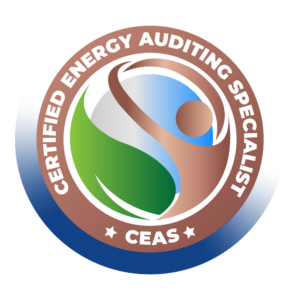Certified Energy Manager – CEM Overview

The Certified Energy Manager – CEM Overview training program provides a comprehensive understanding of Energy and Sustainability Policies, Codes, and Standards; Energy Rates, Tariffs, and Supply Options; Energy Audits and Instrumentation; and EPC and Measurement and Verification with 100+ exam sample questions.
Professionals seeking an all-encompassing curriculum that addresses the technical, economic, and regulatory dimensions of efficient energy management will find the comprehensive introductory training to be an ideal fit.
Participants receive Certification for Energy Efficiency and Management Specialists and a fundamental understanding of energy management, the energy audit procedure, the significance of energy efficiency in relation to climate change, and the energy audit process through the Energy Manager-CEM Overview training program.
Energy management seeks to produce products and provide services in a manner that is both economically viable and environmentally sustainable. Energy management encompasses not only the oversight of energy production from diverse sources but also the optimization of energy utilization in devices that consume energy.
In contrast, we can describe energy management as “the prudent and efficient utilization of energy resources with the objective of optimizing cost-effectiveness and competitive advantage.” Energy management is the strategy for minimizing the required energy per unit of output while maintaining or reducing the total cost of manufacturing output from systems through the regulation and optimization of energy and the application of systems and procedures.
Krishnaji Pawar, an accomplished energy modeling expert, developed the CEM Overview training. He specializes in creating sustainable design strategies for commissioning, environmental impact assessment, green building certification systems (LEED, GSAS, etc.), energy modeling, and environmental management systems.
Learning Objectives
- Introduction and Course Outline
- Energy and sustainability policies
- Energy Rates, Tariffs, and Supply Options
- Energy audits and instrumentation
- ESPC, Measurement, and Verification
- Energy efficiency’s role in climate change
- Energy Efficiency and Management Specialist certification
- Summary and Resources
- CEM Practice Test V4.1: Certified Energy Manager
Certified Energy Manager (CEM) Role
- Optimizes energy performance in facilities, buildings, or industrial plants.
- Systems integrator for electrical, mechanical, process, and building infrastructure.
- Analyzes optimum solutions to reduce energy consumption cost-effectively.
- Serves as team leaders and helps develop and implement energy management strategies.
- Gained recognition in energy industry for responsible energy strategies and sustainable operational practices.
The Certified Energy Manager (CEM) certification is a globally recognized designation in energy management, attracting over 16,000 professionals from 40 countries. It offers numerous benefits for professionals seeking recognition of their industry expertise or as a required designation for a specific position or project.
Other Related courses
Certified Energy Manager – CEM Refresher Training Course
The Certified Energy Manager Refresher Training Course is appropriate for professionals seeking a comprehensive programme covering the technical, economic, and regulatory facets of efficient energy management.
The training program also provides a thorough platform with problem-solving activities for individuals seeking a deeper understanding of the most recent approaches and strategies for reducing energy costs.
Key Learning Objectives
- Energy supply, utilisation, and management of commercial and institutional buildings.
- Energy audits and the ability to provide cost-effective improvement suggestions.
- How buildings can use energy more efficiently
- The relationship between energy and building environments, as well as the fundamentals of green building and facility construction.
- Various systems and equipment are required for buildings and industrial facilities.
- Equations and calculations linked to energy
Certified Energy Manager – CEM Exam Question Bank
 The Certified Energy Manager (CEM) Exam Question Bank consists of multiple-choice questions. The students will be able to assess their knowledge and ability to finish the exam with the required score by practising six hundred questions in five simulation exams to be completed in four hours each. The simulation exams are applicable for the latest version of the Certified Energy Manager (CEM) training material.
The Certified Energy Manager (CEM) Exam Question Bank consists of multiple-choice questions. The students will be able to assess their knowledge and ability to finish the exam with the required score by practising six hundred questions in five simulation exams to be completed in four hours each. The simulation exams are applicable for the latest version of the Certified Energy Manager (CEM) training material.
Key Learning Objectives
- Assess knowledge before final exam.
- Test questions similar to actual exam questions.
- Over 600 questions in five mock exams ranging from easy to expert.
- Understand reasoning behind each question and answer for restudy or revision.
- Cover CEM Exam Knowledge Domains.
- Familiarize with CEM knowledge domain and terminology.
- Ensure exam pass on first attempt.
- Includes 208+ key terminology and study flash cards.
- Includes new CEM_Engineering and HVAC Design Equations.



